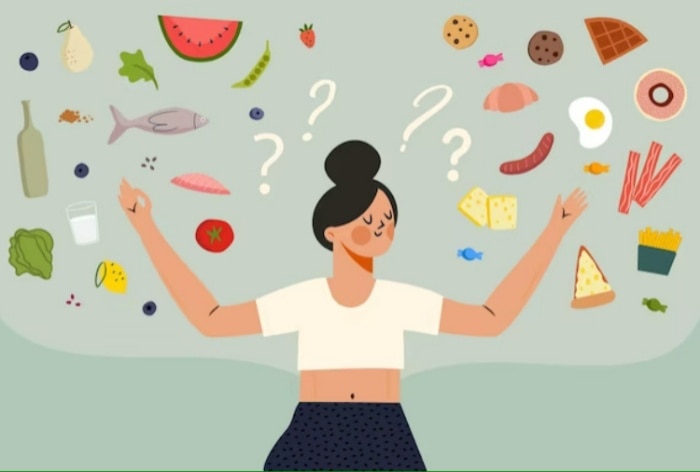Our mental health is influenced by the things we consume, and our mental health condition impacts what and how well we eat. Focus on consuming a lot of fruits and vegetables, as well as meals high in omega-3 fatty acids to improve your mental health.
It might be tempting to resort to food to cheer you up when you’re feeling unhappy. However, the sweet, high-calorie delicacies to which many individuals turn have drawbacks of their own. How can consuming certain meals actually help prevent mental disorders? When you’re feeling down, you might want calorie-dense, high-sugar meals like ice cream or cookies in an effort to cheer yourself up. While this may give you a sugar high, it is unlikely to be of long-term benefit to you and may even be harmful. Instead, focus on eating healthful meals that have been demonstrated to improve both your general health and mood.
Nutritionist Anjali Mukerjee said, “Food plays a significant role in elevating mood and addressing depression.” The expert shares foods that can have a positive impact on your mental well-being.
The science of how food impacts our moods is essentially based on the following equation: Our brain’s physiology, chemistry, and structure alter as a result of dietary changes, which affect how we behave.
8 EXPERT RECOMMENDED FOODS FOR EVERY MOOD
- Eat Smart Carbohydrates: Carbohydrates stimulate the production of serotonin and tryptophan, chemicals associated with well-being. Choose fruits, vegetables, whole grains, and fibre-rich foods for a gradual and lasting effect on the brain.
- Consume Protein-Rich Foods: Proteins provide essential amino acids that contribute to the production of dopamine and serotonin, neurotransmitters linked to good mood. Include dairy products, fish, eggs, and beans in your diet.
- Incorporate Omega Fatty Acids: Omega-3 and omega-6 fatty acids, found in foods like walnuts, flaxseeds, canola oil, and deep-sea fish, support brain health and help cope with depression.
- Boost With B-Complex Vitamins: B vitamins aid energy metabolism and affect the energy supply to the brain. Vitamin B12 and folate supplementation can enhance mental abilities and the effectiveness of antidepressants.
- Include Selenium-Rich Foods: Selenium supplementation improves mood and reduces anxiety. Add beans, legumes, lean meats, and nuts to your diet.
- Ensure Sufficient Vitamin D: Vitamin D enhances the levels of serotonin, the feel-good hormone. Get it from sunlight exposure or through vitamin D-fortified foods.
- Get Enough Zinc: Zinc deficiency is associated with depression and decreased sense of taste. Consume foods like pumpkin seeds, poultry, lean meat, and fish.
- Enjoy Dark Chocolate: Dark chocolate can raise the levels of endorphins and serotonin, promoting a positive mood. Limit consumption to about an ounce (2 to 3 pieces) per day.
Published Date: August 8, 2023 11:00 AM IST
Updated Date: August 8, 2023 11:22 AM IST
–>
–>


